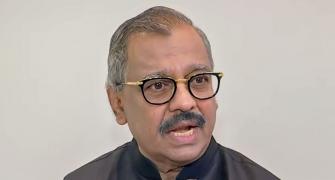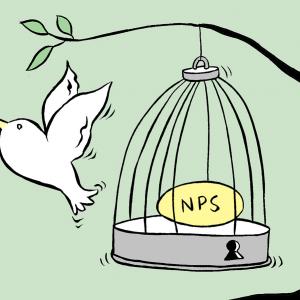If you are overweight on fixed-income instruments, go for ELSS, and vice versa.

The tax saving season is on currently. Many investors may want to invest in an equity-linked saving scheme (ELSS, also called tax saver fund), given the high returns they have yielded in the recent past.
But with 42 funds (with assets under management slightly above Rs 2 trillion), choosing the right fund is not easy.
Higher returns, shorter lock-in Tax-saving products eligible for deduction under Section 80C have a lock-in of at least five years and are fixed-income oriented.
ELSS score on both counts.
"One, their lock-in period of three years is shorter. And two, since the underlying investment is in equities, they offer potential returns often higher than what debt-oriented tax saving tools can fetch," says Anil Ghelani, head-passive investments and products, DSP Mutual Fund.
Greater volatility
ELSS, however, are higher-risk instruments.
"Their returns can fluctuate a lot and hence they might not be apt for risk-averse investors," says Abhishek Kumar, Sebi registered investment advisor and founder, SahajMoney.
Whether you opt for an ELSS or a debt-oriented instrument should depend on your existing asset allocation.
If you are overweight on fixed-income instruments, go for ELSS, and vice versa.
"Investors willing to take risk and those investing for long-term goals may consider ELSS," says Kumar.
Consider passive option A few passive ELSS have become available.
Avinash Luthria, Sebi RIA and founder, Fiduciaries, favours investing in a Nifty50-based ELSS. He suggests avoiding passive ELSS options with high midcap exposure (like the one based on the Nifty Large Midcap 250 Index).
"In 2008-09, when the markets fell, the Nifty 50 Total Return Index (TRI) fell by 59 per cent. But the Nifty Midcap 150 TRI fell even harder -- by 73 per cent. Most investors would find such a fall scary," he says.
Furthermore, according to him, the tracking error in Nifty 50-based funds tends to be manageable.
According to Arun Kumar, vice-president and head of research, FundsIndia.com, "If you lack time or guidance, a passive fund might be a better option."
According to him, one should opt for a passive fund with midcap exposure only if one has at least a seven-year horizon and considerable risk tolerance.
Choosing the right active fund Investors get locked in for three years in an ELSS.
"If the fund manager changes, or there are changes within the fund house, you will not have the flexibility to move out immediately. Hence, go for an established fund that has been around for more than 10 years," says Arun Kumar.
He suggests going with a fund with assets under management of at least Rs 5,000 crore so that it receives adequate attention from the fund house.
Check the fund's rolling returns over a seven- or 10-year period.
"Look at the percentage of times the fund has outperformed its benchmark: higher is better. The margin of outperformance should also be significant," says Arun Kumar.
Next, review calendar year returns and avoid funds whose performance fluctuates sharply from one year to the next.
To evaluate risk, look up the fund's downside capture ratio: lower is better. Also look up upside capture ratio data: Higher is better.
Avoid selecting an ELSS based solely on past performance as an investment style that has done well in the recent past may not be favoured by the market over the next few years and the fund's performance may witness mean reversion.
Arun Kumar suggests ensuring that your overall equity portfolio is balanced across investment styles.
Watch out for fund management changes. If a new fund manager has come in, check his track record at previous fund houses.
Select an AMC that has stable processes in place.
"When you select a fund house with a strong investment framework comprising good investment principles and prudent risk management, then even if the manager changes your investments will continue to be managed broadly in line with what you had envisaged at the time of investing," says Ghelani.
Finally, invest in ELSS via the SIP route and don't pull out money immediately after the lock-in ends: Stay invested for at least seven years.

Disclaimer: This article is meant for information purposes only. This article and information do not constitute a distribution, an endorsement, an investment advice, an offer to buy or sell or the solicitation of an offer to buy or sell any securities/schemes or any other financial products/investment products mentioned in this article to influence the opinion or behaviour of the investors/recipients.
Any use of the information/any investment and investment related decisions of the investors/recipients are at their sole discretion and risk. Any advice herein is made on a general basis and does not take into account the specific investment objectives of the specific person or group of persons. Opinions expressed herein are subject to change without notice.
Feature Presentation: Ashish Narsale/Rediff.com









